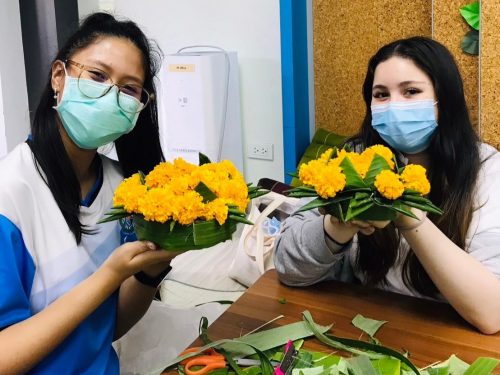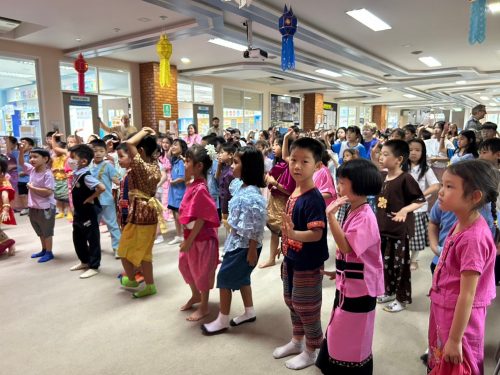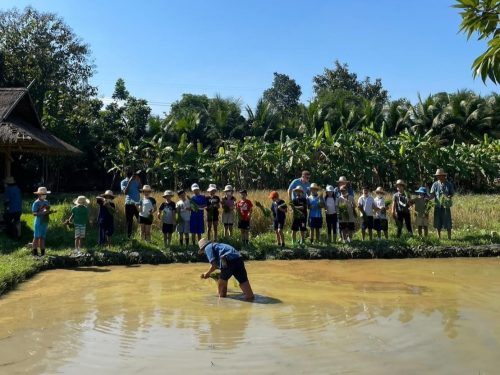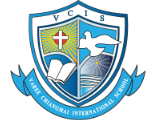Thai Language, Culture, and History Curriculum
Thai Language, Culture, and History (TLCH) Curriculum
The Thai Language, Culture, and History (TLCH) curriculum at Varee Chiangmai International School follows the guidelines of the Office of the Private Education Commission (OPEC). It is designed to be suitable for Thai students whose native language is Thai and for international students based on their potential. Thai students in the international program, from Early Years Foundation Stage (EYFS) to Year 1–11, attend classes every day. This enables Thai children to read and write in Thai fluently for communication and learning, as well as to prepare them for Thai IGCSE examination which uses tests from Cambridge University. The students learn about Thai history, fostering harmonious participation in Thai society with respect for the democratic system and reverence for the monarchy.
For international students, the teaching process aligns with the guidelines of the Office of the Private Education Commission (OPEC), adapting the curriculum to suit the potential of the students. This allows international students to communicate in basic Thai for their daily lives in Thai society, understand and respect the diversity of Thai culture. Thai language learning for international students begins as a second language from Year 3 to 11 twice a week, divided into two levels: A1 (Beginner) and A2 (Intermediate). Students study two subjects, Thai Language for Communication and Thai Culture and History.
Thai Language, Culture, and History (TLCH) Teaching Guidelines
The school recognizes the importance of students by organizing classrooms proportionally, ensuring an adequate number of Thai language teachers for the student population. Furthermore, there is an analysis of the curriculum structure to align with continuous learning and development, focusing on Thai language, Thai culture, and Thai history. Various assessment methods are designed to enhance sustainable learning for students. The school leverages local resources and wisdom, and ICT, such as organizing Thai Language Week, where Thai and foreign language departments collaborate on activities to promote both in and out of the classroom learning.
Collaborative efforts with other subjects, including visits to significant historical sites in Chiang Mai, renowned Thai cooking experiences, and learning about the diverse Thai culture, geography, and climate, contribute to a well-rounded education. This includes exposure to Thai traditional music, dance, and festivities, promoting a deeper understanding of Thai customs and important cultural events like Loy Krathong and Songkran. Additionally, the school provides Extra-Curricular Activities (ECA) which organise Thai-language-and-culture-related activities.





